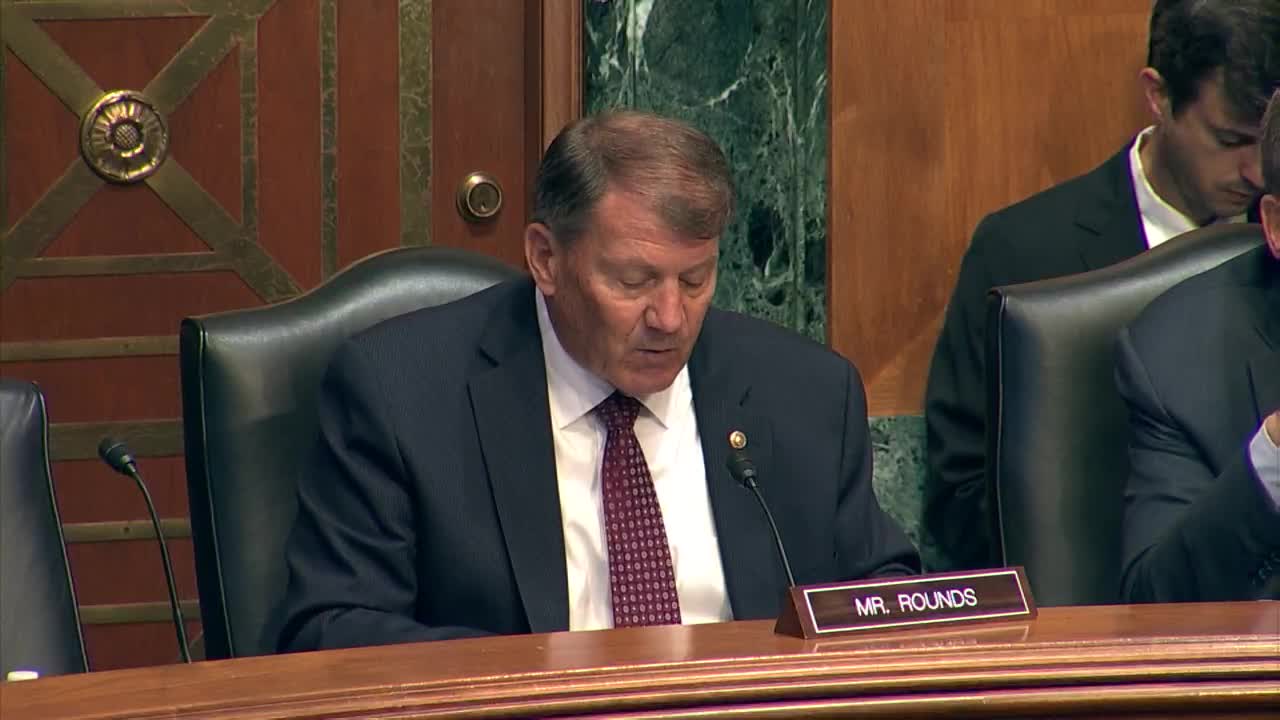Congress Explores AI's Impact on Financial Services and Introduces Innovation Act
July 30, 2025 | Banking, Housing, and Urban Affairs: Senate Committee, Standing Committees - House & Senate, Congressional Hearings Compilation
This article was created by AI summarizing key points discussed. AI makes mistakes, so for full details and context, please refer to the video of the full meeting. Please report any errors so we can fix them. Report an error »

The U.S. Senate Committee on Banking, Housing, and Urban Affairs convened on July 30, 2025, to discuss the significant impact of artificial intelligence (AI) on capital and insurance markets. The hearing, titled "Guardrails and Growth," aimed to explore how Congress can encourage innovation while ensuring transparency and accountability in the financial sector.
During the meeting, experts highlighted how AI is transforming financial services. In capital markets, firms are leveraging AI to analyze vast amounts of data in real time, which aids in making informed investment decisions, executing trades efficiently, and reducing operational costs. Asset managers are utilizing AI to identify risks and opportunities that traditional methods may overlook. Additionally, exchanges are incorporating AI into their market surveillance systems to detect manipulation and maintain market integrity.
In the insurance sector, AI is revolutionizing risk assessment and coverage delivery. Insurers are employing machine learning to analyze structured data, such as claims histories and industry benchmarks, to better understand risk profiles. This technology allows for more accurate policy pricing, quicker underwriting decisions, and expanded coverage options for businesses that were previously deemed too complex or risky.
However, the integration of AI in underwriting poses challenges, as the industry's understanding of generative AI remains limited. The need for clarity in this area was emphasized, with suggestions for potential congressional action or collaboration with standard-setting bodies like the National Institute of Standards and Technology (NIST).
The meeting also addressed the effectiveness of AI in fraud prevention. A major credit card network reported that its AI-driven security enhancements increased fraud detection rates by up to 300%, preventing over $50 billion in fraud over three years. McKinsey's findings indicated that AI systems could reduce fraud detection costs by 30% while improving detection accuracy.
To further support AI innovation in financial services, a bipartisan bill titled the "Unleashing AI Innovation in Financial Services Act" was reintroduced. This legislation aims to create a collaborative environment for financial institutions and regulators to test AI projects, fostering innovation while avoiding outdated regulatory frameworks.
The hearing underscored the importance of balancing innovation with oversight to ensure that the financial sector can harness the benefits of AI without stifling growth or creating unnecessary barriers for smaller firms.
During the meeting, experts highlighted how AI is transforming financial services. In capital markets, firms are leveraging AI to analyze vast amounts of data in real time, which aids in making informed investment decisions, executing trades efficiently, and reducing operational costs. Asset managers are utilizing AI to identify risks and opportunities that traditional methods may overlook. Additionally, exchanges are incorporating AI into their market surveillance systems to detect manipulation and maintain market integrity.
In the insurance sector, AI is revolutionizing risk assessment and coverage delivery. Insurers are employing machine learning to analyze structured data, such as claims histories and industry benchmarks, to better understand risk profiles. This technology allows for more accurate policy pricing, quicker underwriting decisions, and expanded coverage options for businesses that were previously deemed too complex or risky.
However, the integration of AI in underwriting poses challenges, as the industry's understanding of generative AI remains limited. The need for clarity in this area was emphasized, with suggestions for potential congressional action or collaboration with standard-setting bodies like the National Institute of Standards and Technology (NIST).
The meeting also addressed the effectiveness of AI in fraud prevention. A major credit card network reported that its AI-driven security enhancements increased fraud detection rates by up to 300%, preventing over $50 billion in fraud over three years. McKinsey's findings indicated that AI systems could reduce fraud detection costs by 30% while improving detection accuracy.
To further support AI innovation in financial services, a bipartisan bill titled the "Unleashing AI Innovation in Financial Services Act" was reintroduced. This legislation aims to create a collaborative environment for financial institutions and regulators to test AI projects, fostering innovation while avoiding outdated regulatory frameworks.
The hearing underscored the importance of balancing innovation with oversight to ensure that the financial sector can harness the benefits of AI without stifling growth or creating unnecessary barriers for smaller firms.
View full meeting
This article is based on a recent meeting—watch the full video and explore the complete transcript for deeper insights into the discussion.
View full meeting